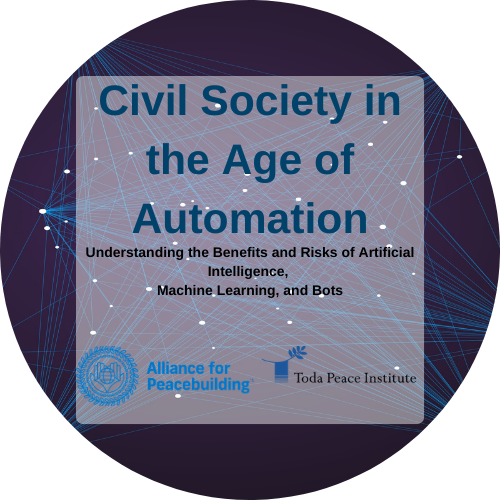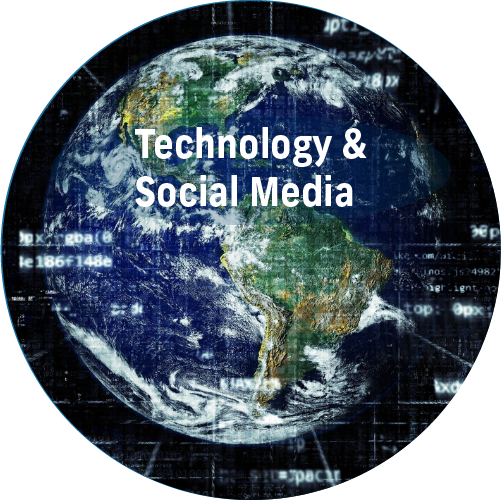The Global Fragility Act of 2019 would require the U.S. government to select at least 5-6 candidate countries or regions based on a set of evidenced-based criteria.This document serves as an example of a country that could, but will not necessarily be, selected in the “Prevention” category.
Read MoreAfP developed a first-ever Briefing Book on peacebuilding and violence reduction issues as a resource for the 116th Congress. This Congressional briefing book outlines the priority recommendations and requests for the U.S. Congress from AfP’s member organizations.
Read MoreCivil society organizations should not view these technologies as a smackdown between flesh and code, but as a partnership to better address development needs. Civil society can play a key role in addressing the risks posed by A.I., especially for marginalized people and communities who will feel the brunt of any negative impact.
Read MoreHard security tools alone cannot defeat violent extremism. A whole-of-society approach that addresses fundamental social and political drivers of extremism must be an integral part of any countering violent extremism (CVE) strategy.
Read MoreThe Toda Peace Institute and the Alliance for Peacebuilding are hosting a series of policy briefs discussing social media impacts on social and political goods. Over the next several months, top experts and thought leaders will provide insight into social media’s threats and opportunities. This first briefing provides a conceptual summary, and a set of policy recommendations to address the significant threats to social and political goods
Read MoreAlthough the American policy community views the Women, Peace, and Security Act and the International Violence against Women Act of 2017 as addressing all the myriad problems women face in conflict, these laws do not adequately deal with the particular and pervasive problem of violence against women in politics, nor has the legislation been interpreted as covering it.
Read More







